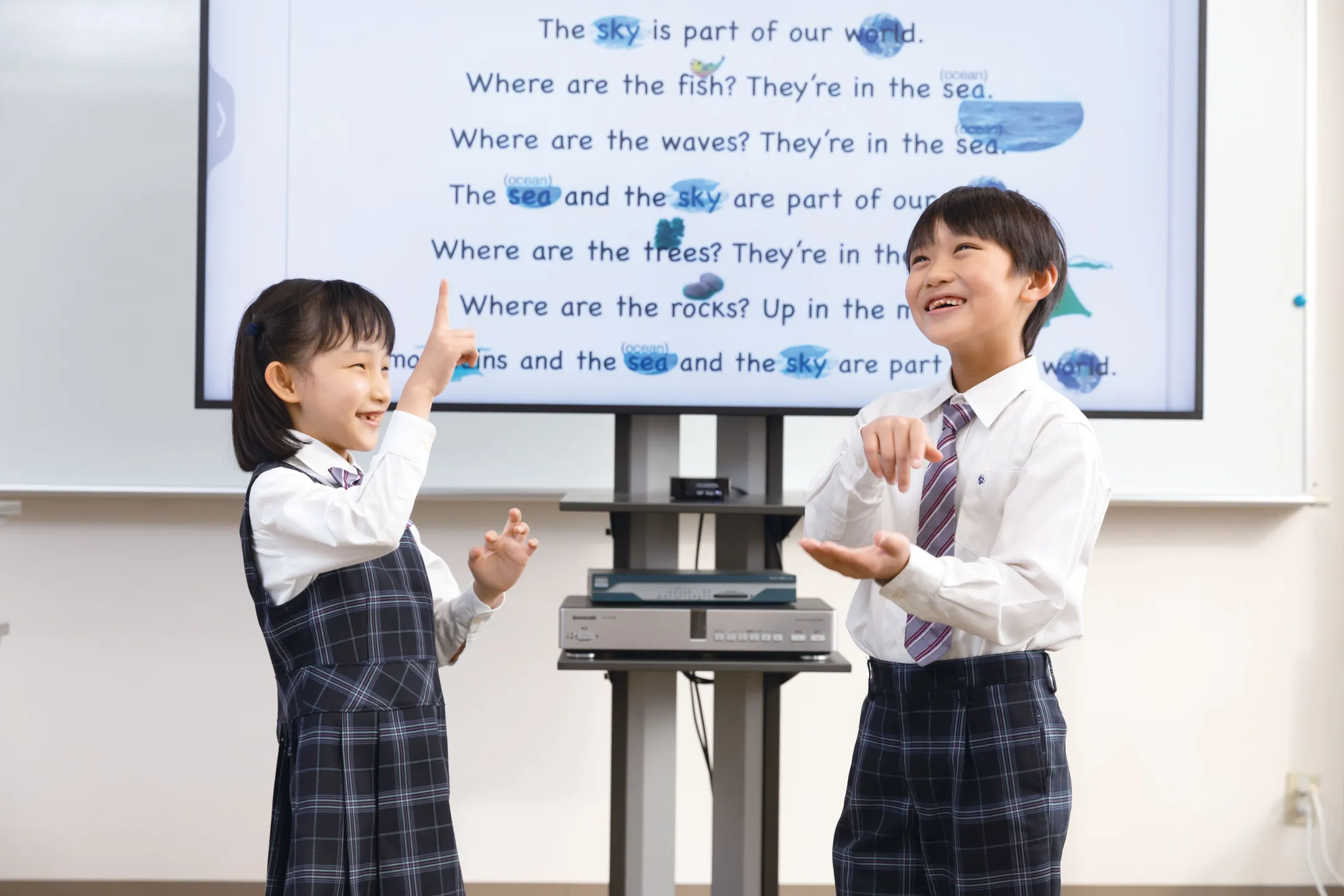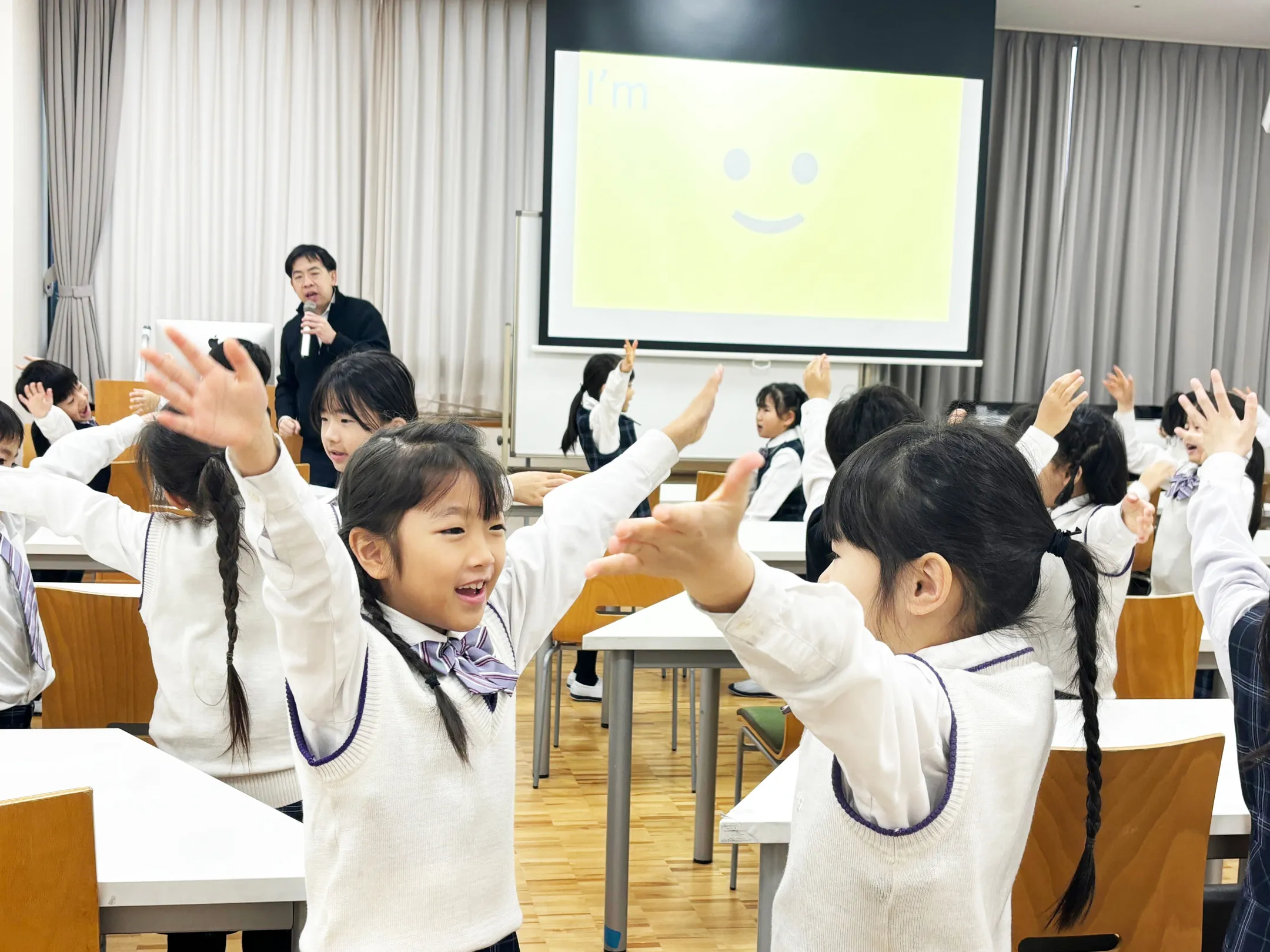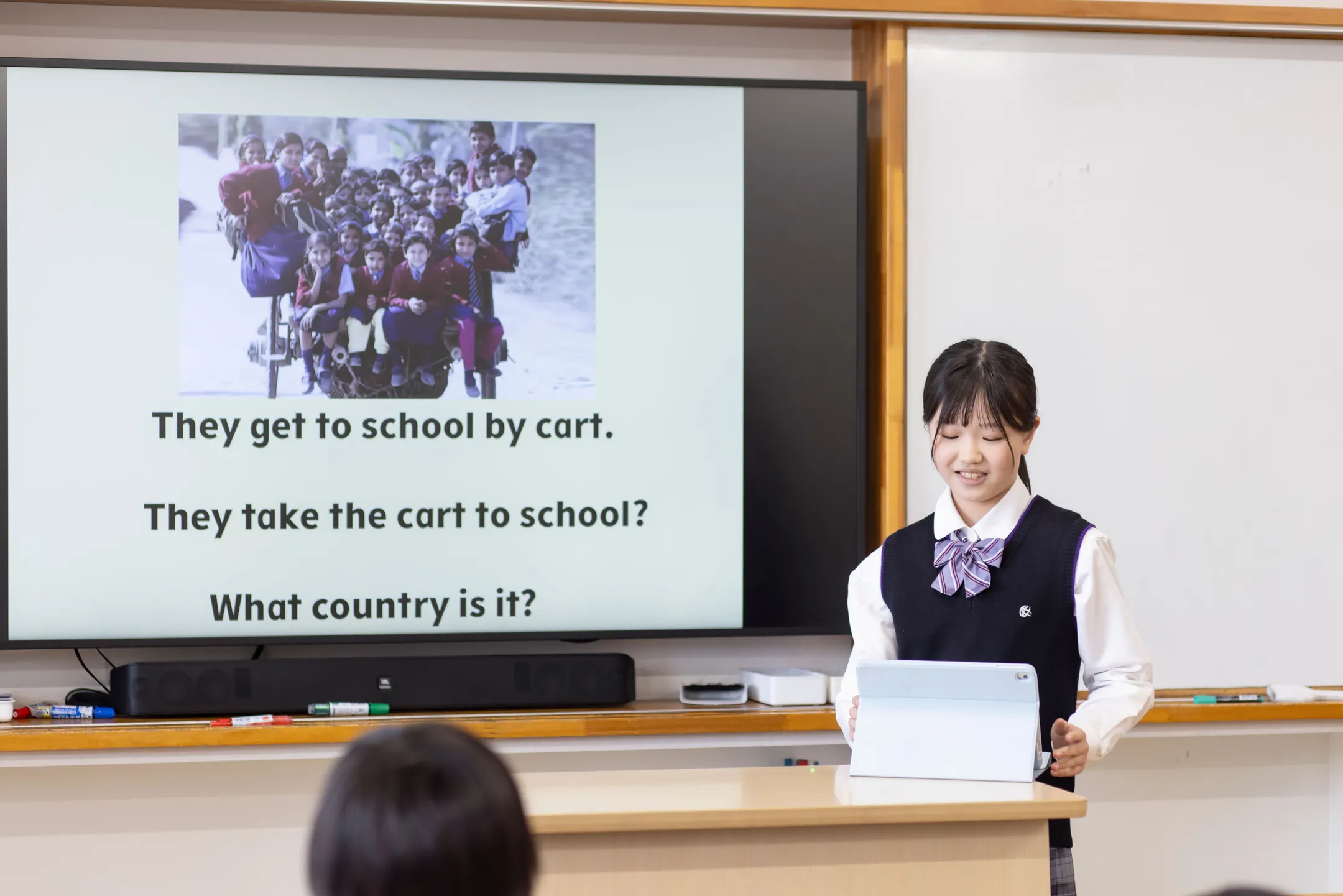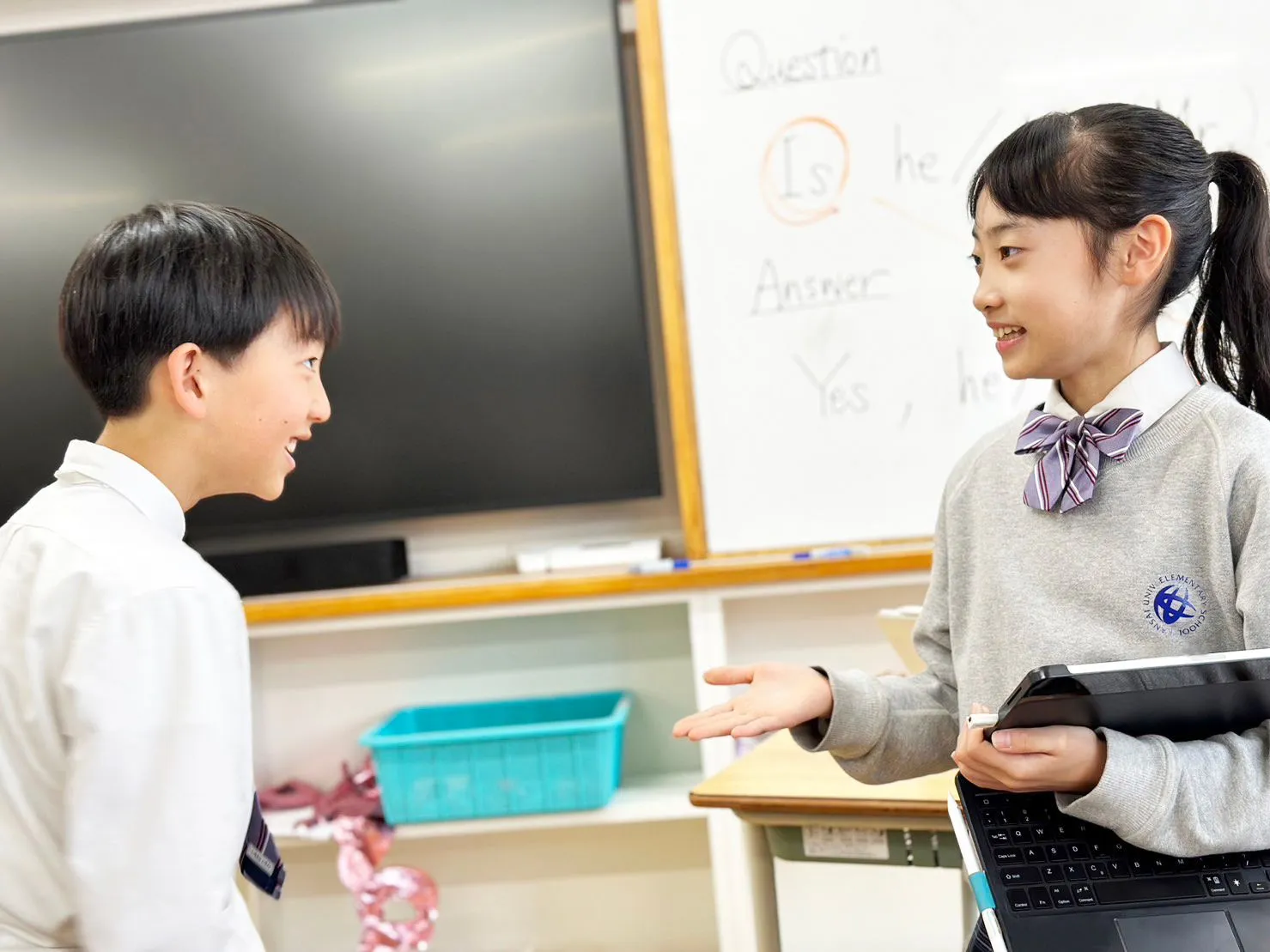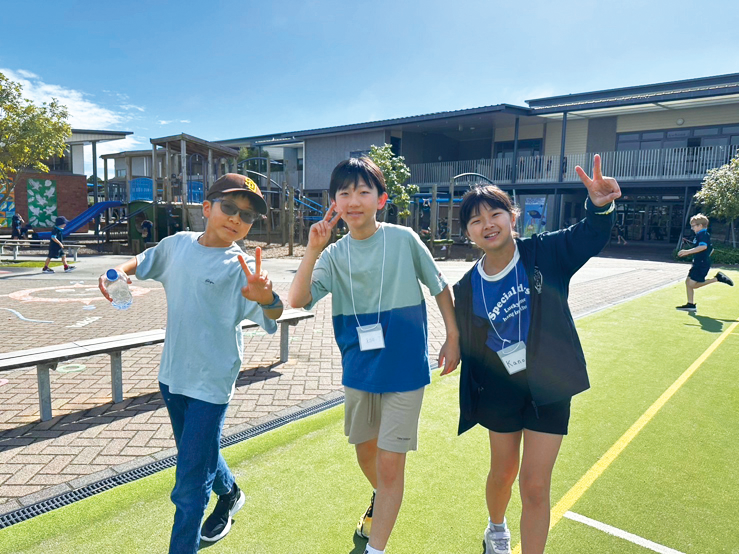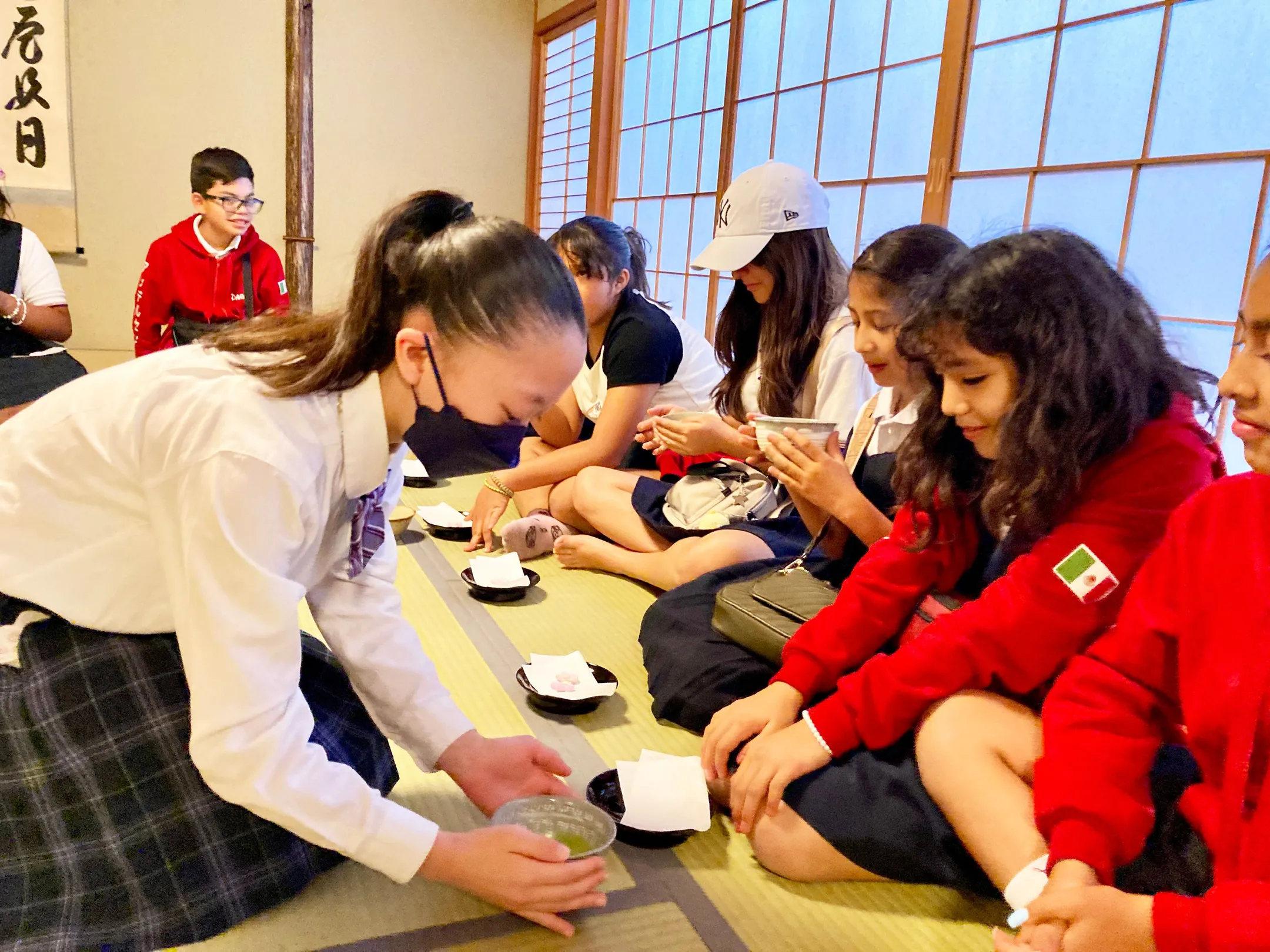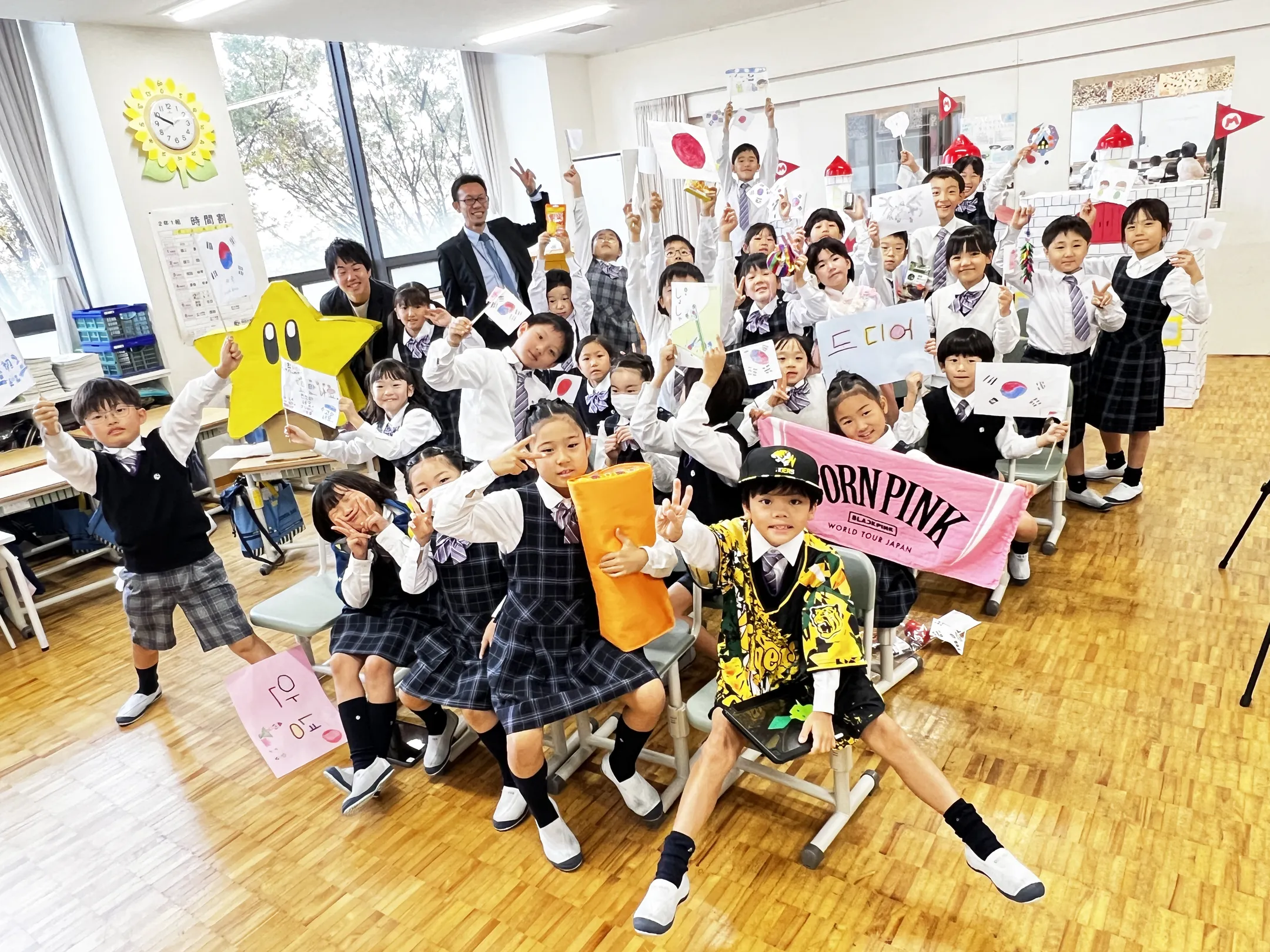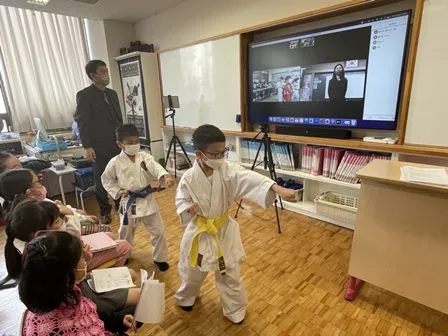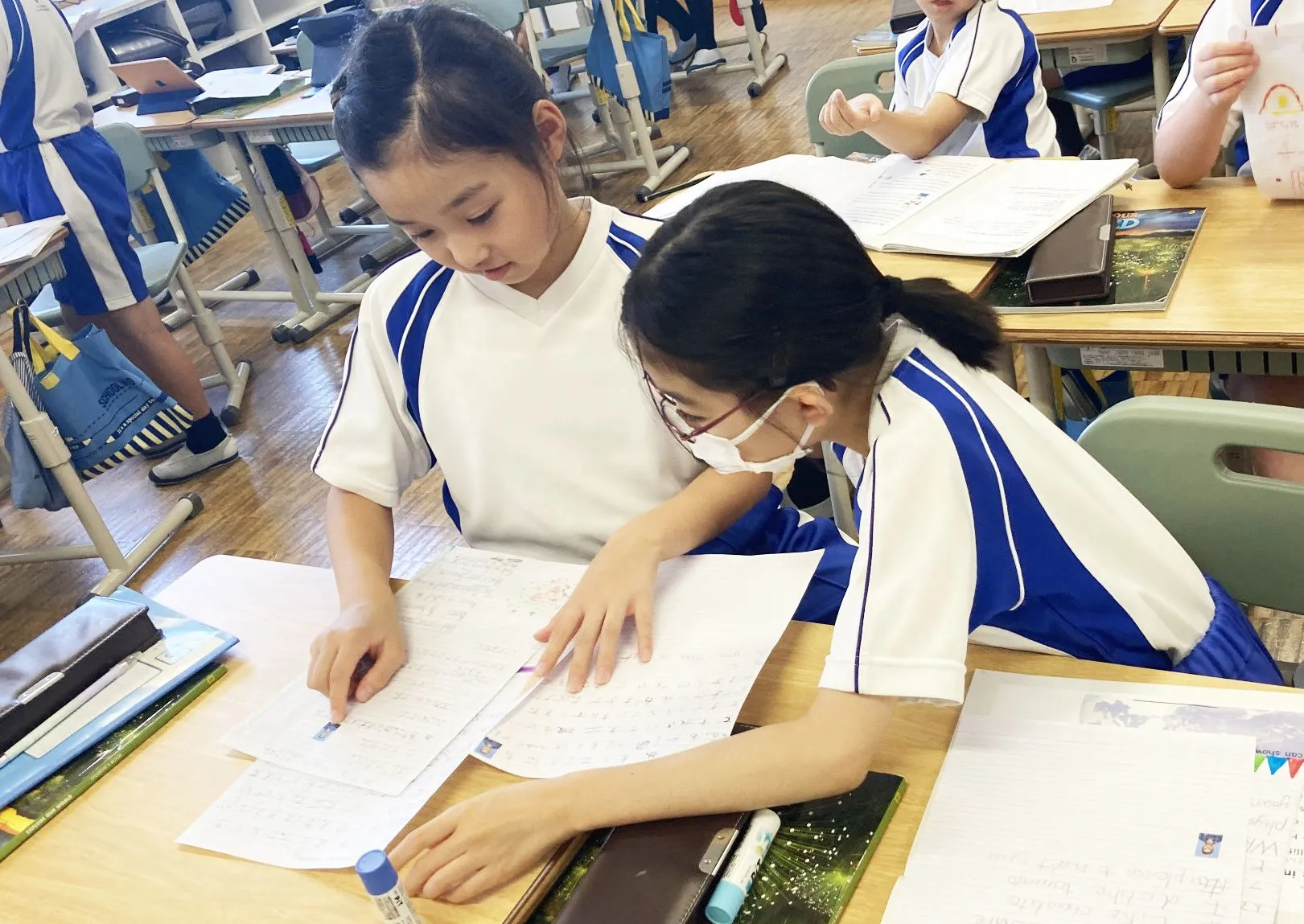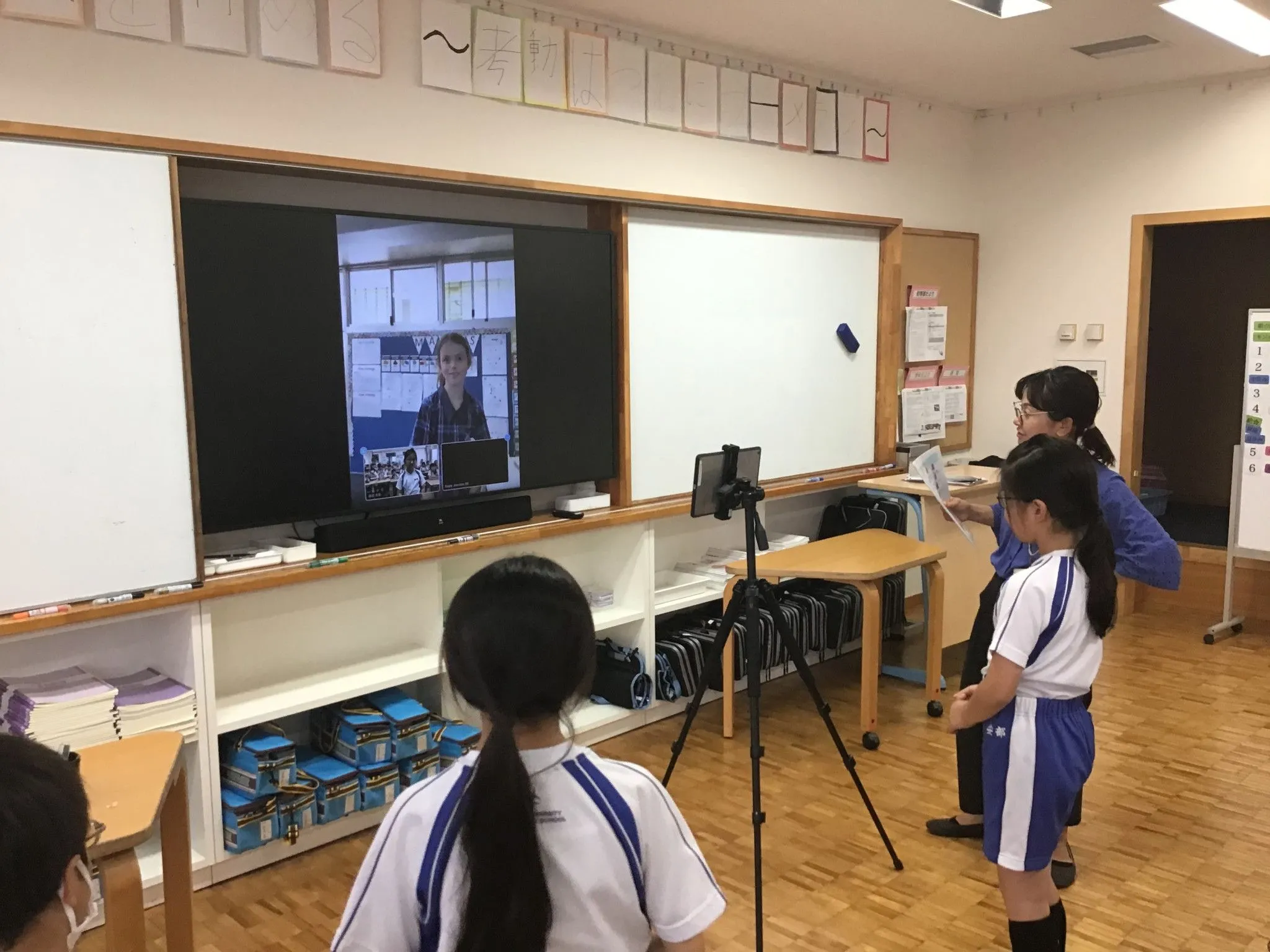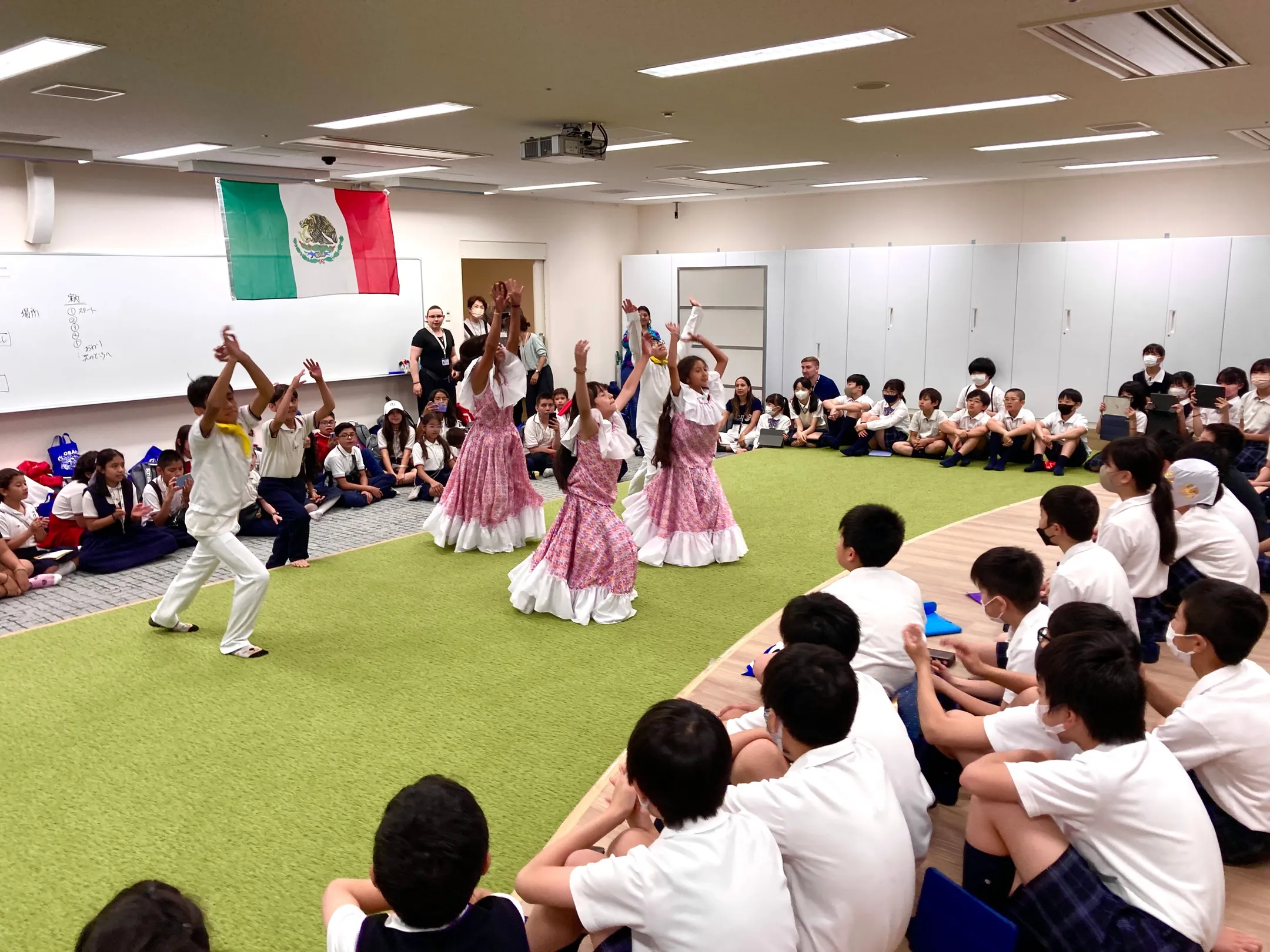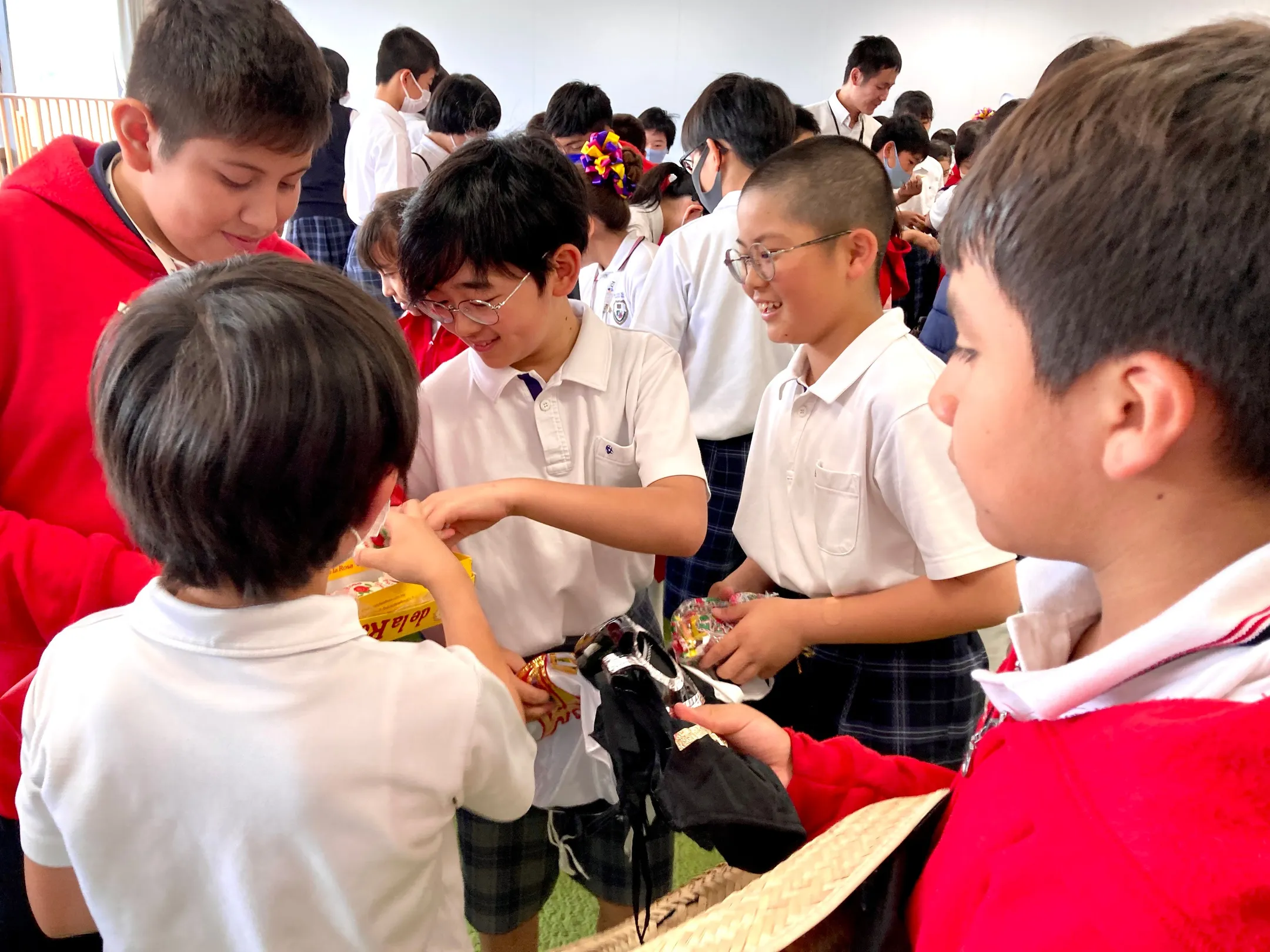Learning fun English in the morning Module Learning class
What is important in acquiring language skills is to work on them every day. For the first and second graders, a 15-minute module learning class in the morning is used to learn English. Children move their bodies while listening to English, sing songs in English, and listen to stories in English, through which they learn English pronunciation. They also practice simple English conversation through interaction with teachers and friends.

